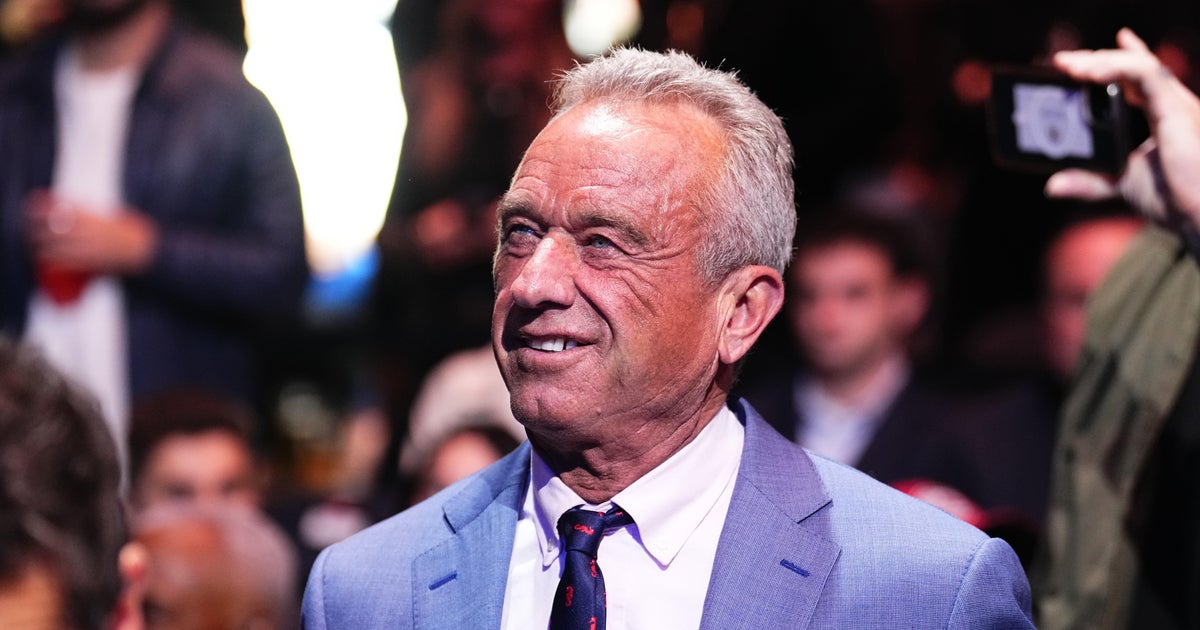
Senate Republican Leader Mitch McConnell issued an apparent warning Friday to Robert F. Kennedy, President-elect Donald Trump’s pick to lead the Health and Human Services Department, after The New York Times reported that one of Kennedy’s top advisers had filed petitions to revoke the approval of a polio vaccine and several other shots.
“Anyone seeking the Senate’s consent to serve in the incoming Administration would do well to steer clear of even the appearance of association with such efforts,” McConnell said in a statement.
McConnell, a polio survivor, denounced efforts “to undermine public confidence in proven cures” like the polio vaccine.
“The polio vaccine has saved millions of lives and held out the promise of eradicating a terrible disease. Efforts to undermine public confidence in proven cures are not just uninformed — they’re dangerous,” McConnell said.
McConnell credited the “miraculous combination of modern medicine and a mother’s love” with saving him from paralysis when he contracted the disease at two years of age, and he praised the “miracle” of “the saving power of the polio vaccine” for the millions of children who came after him.
The Times article focused in large part on the work of attorney Aaron Siri for the nonprofit Informed Consent Action Network, or ICAN, which petitioned the Food and Drug Administration in 2022 “demanding that the FDA suspend or withdraw approval” of Sanofi Pasteur’s inactivated polio vaccine, called IPOL.
Siri has been acting as an adviser to the transition team for Kennedy, who, if confirmed by the Senate, would oversee the FDA and the nation’s other public health agencies.
Siri called the Times article a “hit piece” that did not engage with the substance of the “legitimate” concern at the center of the petition he filed for ICAN.
“ICAN’s petition, filed in 2022, makes the reasonable request that the FDA, as required by federal law, require a proper clinical trial for IPOL prior to licensure,” Siri posted on X.
The Times report on Siri’s work sparked a renewed round of backlash against Kennedy by Democrats, too, who have criticized Trump for months over his ties with Kennedy.
As HHS secretary, Kennedy would have significant direct authority as the nation’s health secretary over how vaccines are studied, approved and recommended in the U.S. He and his FDA commissioner would also oversee how government lawyers respond to many of the legal battles Siri has launched against the agency over vaccines.
Kennedy himself has said he would not ban vaccines and has tried to distance himself from the “anti-vaccine” label, instead calling for further study of the shots. He recently resigned as chair of Children’s Health Defense, a nonprofit that watchdog groups have found for years to be spreading misinformation over fears about vaccines.
President-elect Donald Trump has said he might be open to getting rid of some vaccines “if I think it’s dangerous,” pledging to listen to Kennedy.
“We’re going to have a big discussion. The autism rate is at a level that nobody ever believed possible. If you look at things that are happening, there’s something causing it,” Trump said in an interview with Time magazine published this week, when he was asked if he’d sign off on a move by Kennedy to end childhood vaccination programs.
Extensive medical research has conclusively shown that vaccines do not cause autism.
Siri’s petition for ICAN has not progressed much at the FDA since it was filed in 2022. It is one of several legal efforts Siri has filed for groups against several shots, including a petition in 2020 over hepatitis B vaccines.
In a 2023 letter responding to the polio petition, the agency’s top vaccine official, Dr. Peter Marks, wrote that the FDA “has been unable to reach a decision on your petition because it raises issues requiring further review and analysis by agency officials.”
Siri’s petition targets IPOL, which is the only “single-antigen” polio vaccine currently recommended for use in the U.S. The vaccine was approved in the 1990s.
Many children who receive immunizations for polio often do not receive IPOL, but rather, one of several combination vaccines that blend a harmless version of the poliovirus with other recommended antigens for various vaccine-preventable diseases.
The CDC says IPOL is “mainly used as a travel vaccine for adults.” The agency says that the “body of scientific evidence overwhelmingly supports” the safety of polio vaccines.
Siri has hinted at plans for more petitions to the FDA, after Kennedy is in charge at HHS.
“It will help if there are outsiders, from the outside attacking in. For example, the FDA acts on petitions. If you want to license a product, you have to petition them. If you want a product to be withdrawn or reevaluated, you typically often have to petition them,” Siri told Del Bigtree, ICAN’s founder and a former campaign spokesperson for Kennedy, on his podcast last month.
“Somebody on the outside needs to be petitioning them,” Siri added.
